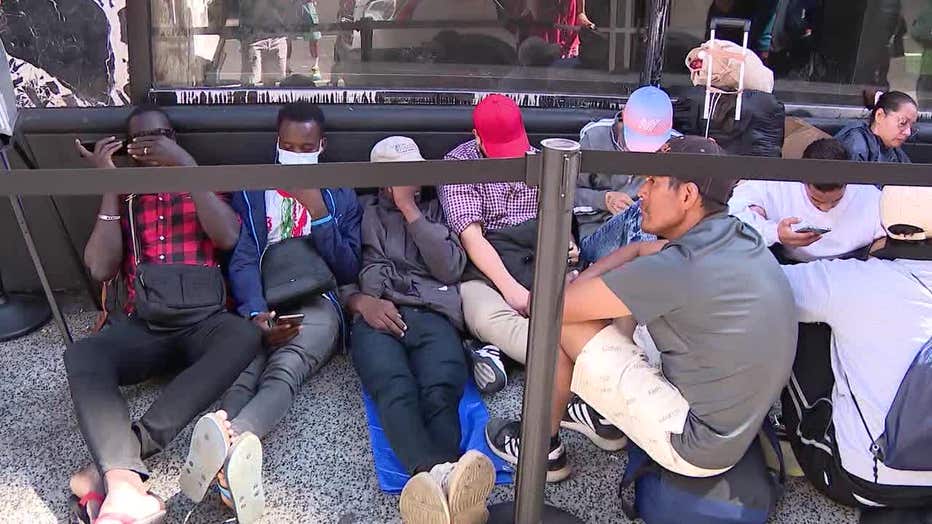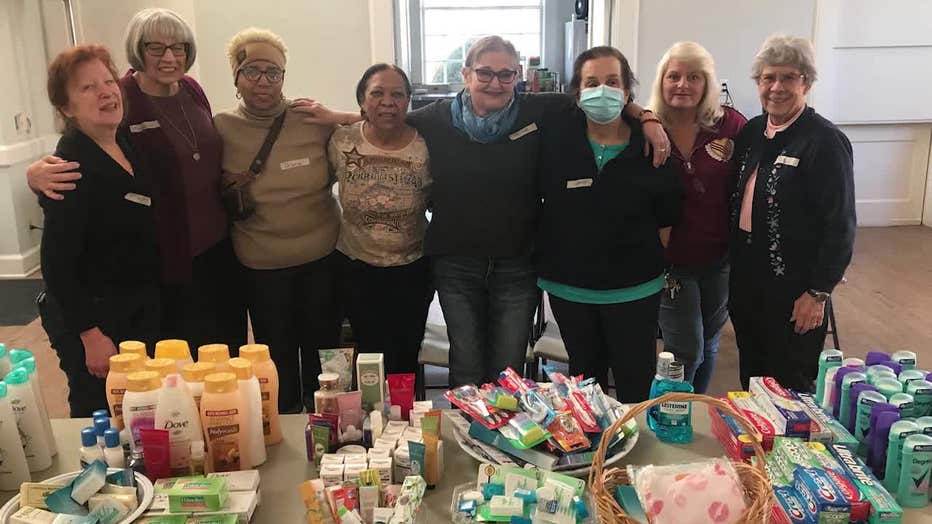How organizations are meeting the needs of homeless New Yorkers and migrants
NEW YORK CITY - Organizations across New York City are meeting the needs of homeless New Yorkers and migrants.
Inside Metro Baptist Church in Midtown, warm earthy smells radiate from inside the kitchen.
Volunteers and migrants are busy prepping hot meals to serve others. On the menu is a stew native to Guinea.
Multiple leaders from the Resources, Opportunities, Connections, and Community (ROCC) program co-created by both Artists Athletes Activists and Metro Baptist Church’s Rauschenbusch Metro Ministries (RMM), help provide migrants with food, legal services, and answer their housing questions.
Services don’t end there; vulnerable and unhoused New Yorkers also come to the church to receive toiletries and snack packs.
Migrants and homeless New Yorkers have similar, but also different needs. At times, asylum seekers have been referred to as living within the shadows of a system due to their immigration status. Reaching both groups requires time, effort, and resources.

"What we're trying to do is debunk the myth that there isn't enough for everyone, and that if you help one group, you can't help another group," said Power Malu, the executive director for Artists Athletes and Activists.
Open Hearts Initiative serves the needs of both migrants and vulnerable New Yorkers. They hold multiple events at shelters across NYC to distribute things like clothes and toiletries.
"The city has sort of separated folks in different ways and so we found that it's often practically simpler to do multiple events rather than something that would try to serve tens of thousands of people at once," Sara Newman, the director of Organizing for Open Hearts Initiative, said.
In a statement, a spokesperson for NYC’s Department of Social Services wrote:
"At the NYC DHS we don’t take a one-size-fits-all or band-aid approaches to addressing homelessness, which is why we partner with experienced not-for-profit providers to deliver dedicated support for families and individuals experiencing homelessness based on their unique needs. To ensure the streamlining and effective delivery of services, shelter programs are carefully designed to provide critical support for different populations with social services staff working closely with each household to help them stabilize their lives. At sanctuary sites, in addition to wraparound supports, DHS and not-for-profit staff are trained to address the unique needs of asylum seekers, which includes making vital connections to immigration, healthcare, education supports, and other city resources as part of a strongly coordinated interagency response to the humanitarian crisis. We are proud of how quickly the agency and city worked to stand up dedicated programs for asylum seekers and ensure that they not only receive the same services and supports as long-term New Yorkers but that we’re also providing for their very unique needs."
WIN, a non-profit provider, which houses homeless women and their children, is led by former City Council Speaker Christine Quinn. The organization is now housing both migrant families and what they refer to as their traditional families, but that required it to restructure itself to be able to offer things like legal services, food, and a translation system.

"It was probably a year and a half ago or so that we saw, about 247 families, a thousand individuals who were asylum seekers come to shelter," Quinn said.
Quinn said helping both groups meant spending $1 million more than what was budgeted, so WIN went out and raised the money.
Across their 16 shelters, they have a 1% vacancy rate. On average, traditional families stay at their shelters for about 11 months, but Quinn said migrant families will likely be living at their shelters for at least one year.
Back in Midtown, Pedro, a migrant from Venezuela, comes back to the church to volunteer.
In Spanish, he told FOX 5 he is grateful for those that have helped him during his time of need, and enjoyed continuing to pay it forward for those who are looking for food or a sense of community.

